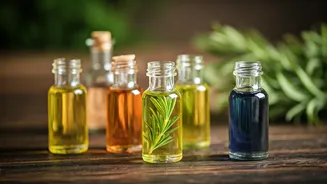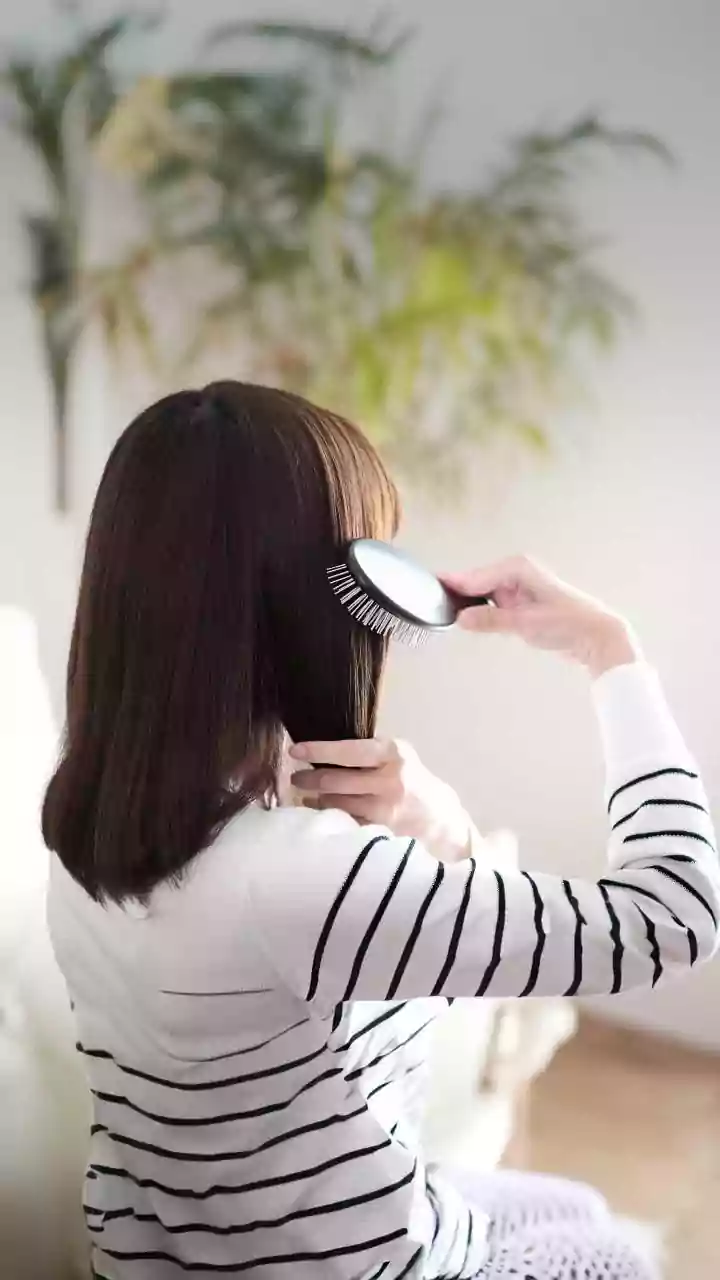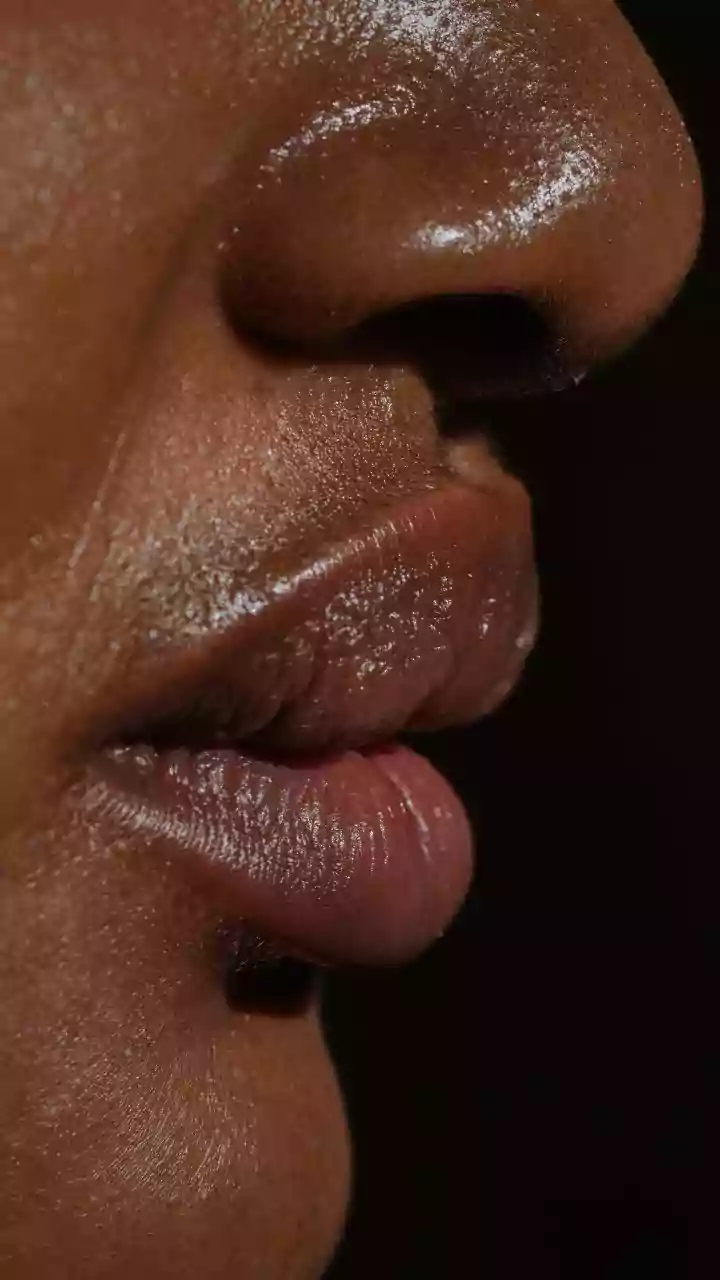Rosemary Oil's Power
Kickstarting our list is rosemary oil, often touted for its remarkable ability to stimulate hair growth. This oil boosts circulation to the scalp, which
in turn nourishes hair follicles and encourages new growth. Using rosemary oil can help combat hair loss and stimulate hair growth. Incorporating this into your routine is quite simple. Try massaging a diluted version of the oil into your scalp a few times a week, leaving it for several hours, or even overnight, before rinsing. This consistent application provides a soothing and nourishing experience, helping your hair appear thicker and healthier over time. The benefits stem from rosemary's active compounds that stimulate blood flow, providing essential nutrients that are key to the health of your scalp. By focusing on boosting blood circulation to the scalp, rosemary oil sets the stage for new growth, making it a powerful contender in your hair care regimen during winter.
Lavender's Calming Effect
Next on our list is lavender oil, celebrated for its calming aroma and its beneficial impact on hair health. While it's known for its relaxing qualities, lavender oil also promotes hair growth. It helps in improving scalp health by acting as a natural antimicrobial and antiseptic agent. Applying lavender oil directly to the scalp can help soothe irritation and reduce inflammation, creating a more suitable environment for hair growth. Its regular use can lead to stronger, shinier hair. Consider adding a few drops of lavender oil to your regular shampoo or conditioner. Alternatively, you can mix it with a carrier oil, such as jojoba or coconut oil, and massage it into your scalp. This practice not only provides a therapeutic experience but also helps in stimulating the hair follicles, encouraging growth, and giving you an added boost in the winter months.
Tea Tree Oil's Cleansing
Third on our list is tea tree oil, famous for its cleansing properties. Tea tree oil helps to unclog hair follicles, allowing for improved blood circulation in the scalp, essential for fostering new hair growth. The potent antifungal and antibacterial qualities of tea tree oil help keep the scalp clean and free from issues like dandruff. For optimal results, you can combine tea tree oil with a carrier oil and massage it into your scalp. Leave it in for some time before rinsing it out. It is also a versatile oil that can be added to your shampoo. This routine provides the scalp with the necessary cleansing to maintain overall hair health and encourage growth. Remember to be cautious as tea tree oil can be strong, so always dilute it before use to prevent any skin irritation. Proper and careful application will yield positive results, especially during the harsh winter season.
Batana Oil's Revitalization
Batana oil, often used for hair revitalization, is a great option. It is rich in fatty acids and antioxidants. These components deeply penetrate the hair shaft, nurturing and strengthening it from the inside out. Regularly using Batana oil can promote a healthier scalp. The result is hair that is not only healthier but also more resistant to the harsh winter conditions. To use it, you can apply a small amount of the oil to your scalp and massage it in. It can also be applied as a pre-shampoo treatment, to protect your hair from the harsh winter elements. It's an excellent choice for anyone looking to increase hair health. It is an ideal way to boost hair growth during winter. Batana oil will make your hair softer, more manageable, and more resistant to breakage.
Argan Oil's Nourishment
Argan oil, derived from the argan tree, has quickly become a star in hair care, celebrated for its rich blend of nutrients. Packed with antioxidants, essential fatty acids, and vitamin E, this oil profoundly nourishes the hair and scalp. It moisturizes and softens the hair, reducing breakage and improving elasticity. Its use can significantly reduce split ends. Argan oil is particularly effective during the winter when hair tends to dry out due to cold temperatures and indoor heating. Using argan oil is quite easy. Apply a few drops to damp hair after showering. You can also use it as a deep conditioning treatment once a week. Argan oil will infuse your hair with moisture and shine, making it an excellent choice for a robust hair care routine.
Castor Oil's Strengthening
Castor oil is a thick, viscous oil known for its hair-strengthening properties. Its high ricinoleic acid content improves blood circulation to the scalp and strengthens hair follicles, potentially leading to increased hair growth. Regular use can prevent hair breakage and promote thicker, healthier hair. Castor oil also contains essential nutrients that nourish the scalp. For best results, massage a small amount of castor oil into your scalp, concentrating on areas where you desire to see new growth. You can leave it overnight for maximum impact. Rinse it off with a gentle shampoo the next day. This oil works effectively, enhancing hair health, especially during the colder months when hair often becomes fragile. Use it for consistent results. It will help strengthen your hair from the root, providing a protective layer that combats the elements.
Peppermint Oil's Invigoration
Last on the list is peppermint oil, which has a refreshing and invigorating effect on the scalp. The menthol in peppermint oil helps to increase blood flow to the scalp, leading to better circulation. This enhanced circulation promotes hair growth by delivering more nutrients to the hair follicles. Peppermint oil also has antimicrobial and anti-inflammatory properties that can soothe the scalp and reduce issues like dryness. To use peppermint oil, dilute it with a carrier oil like coconut or jojoba oil. Gently massage the mixture into your scalp. The invigorating sensation will not only stimulate your senses but also foster a healthy environment for hair growth. Use it a few times a week, especially during winter, to stimulate hair follicles, making your hair grow faster and healthier. Peppermint oil will give a refreshing kick to your hair care regimen.



















